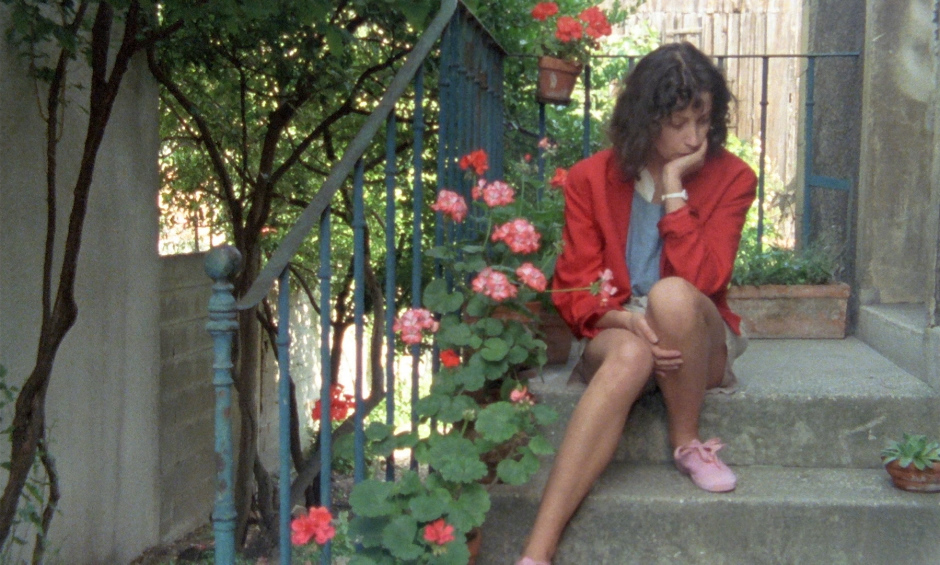
Éric Rohmer’s The Green Ray is about deep, buried sorrow. It’s universally relatable in the way it portrays sadness and loneliness. It centers around Delphine, a character who feels that something is deeply wrong in her life. In the wake of her summer vacation plans falling through and her recent split with her boyfriend, she is left searching for how to spend her summer in a way that she wants and even needs. It’s not hard to imagine the sadness of feeling alone for the summer when everyone has plans and people to be with, especially in France when vacation lasts all summer. Something about that premise alone deeply moves me.
But what’s so brilliant about Rohmer’s filmmaking is that he isn’t interested in oversimplified character emotions or straightforward problems. Delphine’s sorrow doesn’t come simply from being alone or splitting up with her boyfriend. These situations just leave her the room to feel a deeper sorrow rising to the surface, one that isn’t immediately clear. Because of this, the film plays out like a kind of mystery, asking the question: what is really wrong?
The Green Ray isn’t made up of scenes with dramatic breakdowns or breakthroughs, but about what happens in between them; the confusion of the mundane when you’re not sure what’s going on, or why you feel so bad. Delphine often withdraws in the film to cry, although she can’t stand to be alone. She seeks companionship, but cannot handle the possibility of a pointless one-night stand or being around people that don’t feel right to her. Maybe she’s being too judgmental. Maybe she’s too shy. Maybe she needs to have fun. These suggestions bombard her from the people she encounters, but she remains stuck helplessly in a spot in life where she feels off and wrong. She is not okay. We see this play out as the film sort of wanders through July into August, as Delphine searches for a place to spend her time, and possibly someone to be with. A restless uncomfortability sits with her constantly.
As the mystery plays out, Rohmer also infuses a wonderful element of the mystical or spiritual, that pervades the entire film. Delphine continues to run into playing cards on the ground and encounters that are seemingly leading her to this “green ray”. These are too often to be coincidental, and serve as a guiding hand for her. The film continues with these spiritual nudges, eventually revealing the titular concept of the green ray through overheard dialogue that makes us lean forward in curiosity like Delphine does, waiting to see how the divine will continue to reveal itself after so much searching and pain.
This aimless wandering creates the illusion that the film doesn’t know where it’s going, but sort of just stumbles across the themes. But as it reaches its inevitable conclusion, Rohmer’s filmmaking seems to mirror the spiritual elements in the film, quietly but pointedly leading us forward into greater awareness and understanding. The Green Ray is a masterpiece in my opinion. It’s not afraid to be embarrassing or brutally honest. It’s uncomfortable and truthful. An optimistic reading of the themes (which I choose to take), would be to feel comfort from a film like this. A reminder that our pain is not permanent, and there is a helping hand leading us forward. I’m sure there are others who will read it differently, but I believe eventually we see our green ray if we continue to stop and look for it. This film is perfect for a sad Summer day.
